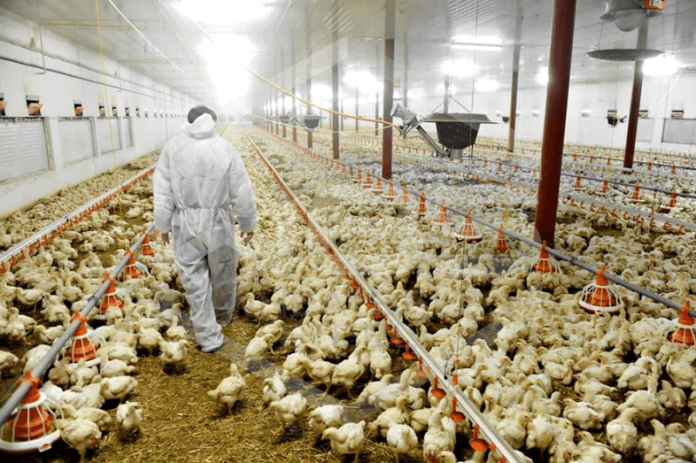LAHORE: Poultry farmers on Saturday raised concerns over the rapid increase in raw material prices which may lead to reduced production and high priced poultry products in the long run.
In this regard, Pakistan Poultry Association (PPA) North Region Vice Chairman (VC) Raja Attique-ur-Rehman said, “The price for corn, which was Rs1,132 per maund in July, has shot up to Rs1,700 per maund; soybean meal from Rs3,273 to Rs4,160, rice tips from Rs1,371 to Rs1,800, wheat bran from Rs1,078 to Rs 1,421, canola meal from Rs2,412 to Rs2,508 and sunflower meal from Rs1,814 to Rs2,160 per maund during the same period.”
Lamenting that feed prices are increasing on a daily basis, the PPA vice chairman alleged that in the case of corn, large scale hoarding is taking place. “Stockists have enough stocks but they are not releasing it in the market. They are releasing small quantities and increasing prices on a daily basis”.
Rehman opined that poultry feed being 75-80pc of the input cost will have a serious impact on the cost of production and will contribute to losses suffered by farmers.
He maintained that feed prices during July to November have gone up from Rs3,085 per 50kg to Rs3,530 which means that there has been an increase of Rs8,900 per tonne within just a few months.
He further said that protocols which are in place to curtail the spike of Covid-19 have reduced the consumption of chicken due to restrictions on weddings and restaurants, which would further depress supplies and increase costs.
The PPA office bearer demanded that custom duty and regulatory duty be removed temporarily from corn import, while customs duty on soybean oilseed – raw material of oil sector – be brought down from 3pc to 0pc and sales tax be brought down from 17pc to 5pc.
“Soybean meal is an essential ingredient of poultry feed and also produces edible oil for consumption. Customs on its import must be brought down,” he stressed.
PPA Regional Secretary Major (r) Syed Javed Hussain Bukhari said if production remains depressed for a longer period of time, it will result in a reduction in placement of grandparent and parent stock chicks, which will affect production for 77 weeks.
“Concerned departments need to take action with utmost urgency in order to save the poultry sector and consumers from long term inflation,” he said.




